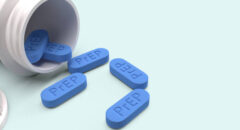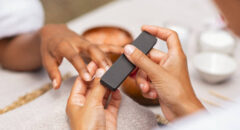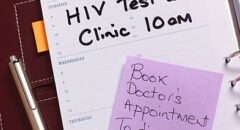 What is National Black HIV/AIDS Awareness Day?
What is National Black HIV/AIDS Awareness Day?
February 7 is Black HIV/AIDS Awareness Day, a national HIV testing and treatment community mobilization initiative targeted at Blacks in the United States.
1. The day was founded by five national organizations and funded by the Centers for Disease Control and Prevention in 1999 to provide capacity building assistance to Black communities and organizations.
2. The initiative begin in 2000 with these five key organizations: Concerned Black Men, Inc. of Philadelphia; Health Watch Information and Promotion Services, Inc.; Jackson State University – Mississippi Urban Research Center; National Black Alcoholism and Addictions Council; and National Black Leadership Commission on AIDS.
3. National Black HIV/AIDS Awareness Day began as a grass roots effort with hundreds of organizations registering events and/or activities to raise the awareness of HIV and AIDS in their communities. It is shaped around the needs of those communities that work hard each and every year to make it a success. Each year, almost 20,000 Blacks in the United States test positive for HIV. In other words, 100,000 Blacks are now living with HIV or may have died from AIDS related complications.
4. There are four specific focal points: education, testing, involvement, and treatment.
• Education. One important focus is to get Blacks educated about the basics of HIV/AIDS in their local communities.
• Testing. Testing is at the core of this initiative, as it is hoped that Blacks will mark February 7 of every year as their annual or bi-annual day to get tested for HIV. This is vital for those who are sexually active and those at high risk of contracting HIV.
• Involvement. When it comes to community and organization leadership, getting Blacks involved to serve is another key focus. We need Black people from all walks of life, economic classes, literacy levels, shades and tones, as well as small and large communities to get connected to the work happening on the ground in their local areas.
• Treatment. Getting those living with HIV or recently-tested positive for the virus connected to treatment and care services is paramount. We cannot lead Black people towards HIV/AIDS education, prevention, testing, leadership or treatment unless we love them.
And, we can’t save Black people from an epidemic unless we serve Black people.
5. Testing Information You Need To Know…
How can I tell if I’m infected? The only way to know if you are infected is to be tested for HIV infection. You cannot rely on symptoms to know whether or not you are infected. Many people who are infected with HIV do not have any symptoms at all for many years.
For information on where to find an HIV testing site, visit the National HIV Testing Resources web site at http://www.hivtest.org or call CDC-INFO24 Hours/Day at (800) CDC-INFO (232-4636), (888) 232-6348 (TTY).
What are the most effective ways to be tested for infection? In most cases the test is performed on blood drawn from a vein. The blood is checked for the presence of antibodies to HIV. Other body fluids can also be tested to screen for HIV.
These include:
Oral Fluid Tests: These tests use oral fluid (not saliva) that is collected from the mouth using a special collection device.
Urine Tests: These tests use urine instead of blood. The sensitivity and specificity (accuracy) of the oral and urine tests are less than that of the traditional blood tests.
Rapid Tests: A rapid test is a screening test that produces very quick results (approximately 20-60 minutes).
Home Testing Kits: In July of 2012, the U.S. Food and Drug Administration (FDA) approved OraQuick, the first home test kit for HIV infection. Individuals can purchase the kit at stores and pharmacies and even on-line to test themselves in the privacy of their homes. Chain drugstores, including Duane Reade and CVS, carry the test for around $40.
Departments, clinics, offices of private doctors, hospitals, and other sites set up specifically to provide HIV testing. For information on where to find an HIV testing site, visit the National HIV Testing Resources web site at http://www.hivtest.org, or call CDC-INFO, (800) CDC-INFO (232-4636), (888) 232-6348 (TTY).
How long after possible infection should I wait to get tested? It can take some time for the immune system to produce enough antibodies for the HIV test to detect. This time period can vary from person to person. Most people will develop detectable antibodies within two to eight weeks (the average is 20 days to 25 days). Even so, there is a chance that some people will take longer to develop detectable antibodies. If the initial negative HIV test was conducted within the first three months after possible exposure, repeat testing should be done at six months.
What happens if I test positive? If you test positive for HIV, the sooner you take steps to protect your health, the better. Early medical treatment and a healthy lifestyle can help you stay well. Prompt medical care may delay the onset of AIDS and prevent some life-threatening conditions. There is much you can do to stay healthy. Learn all that you can about maintaining good health.








